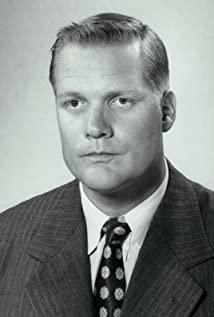The title "The Absent Person" has three meanings: the first is from the perspective of the police, a third party that has been overlooked in homicide cases. The second is from the perspective of a wife, which is of no value to her life, and is a husband who is dispensable as if it does not exist in her own life. The third is the angle of the male protagonist. He can't feel his own subjectivity, as if he never existed.
The film adopts a literary narrative technique, and the inner monologue of the protagonist Ed runs through the whole story. Billy Bob Thornton uses his lazy and magnetic voice to slowly bring the audience into the character's inner world, capture his emotions, and feel his alienation, isolation and separation from the outside world.
The characters in the movie construct others according to their own wishes, and alienate in this self-created image, forgetting the identity of their creator.
His wife, Dorothy, symbolizes the masses captured by consumerism. They sink into material enjoyment, misrecognize themselves and lose themselves in the beautiful illusion made up of industrial products.
My wife likes her accounting job, she likes to know the location of various goods on the shelves, she likes the staff's 10% discount, she likes nylon stockings, perfumes and cosmetics. Such a clear grasp of the number, price, and product location can bring a sense of control.
However, this is just an illusion. When people work day and night to own commodities, when people are controlled by strict time disciplines over their bodies and souls, when authority determines and constructs desires instead of human essence. We still can't realize who is the master and who is the slave.
The boss, Dave, is a slave to traditional masculinity. He worshipped violence and conquest, fabricated cruel and bloody stories, and portrayed himself as a war hero. In fact, his large sum of wealth was obtained by entering the family's family, and his several "battle experiences" were nothing more than fighting with people in the tavern. He had never been on the battlefield, and was only doing paperwork at the San Diego Naval Shipyard during World War II.
People's psychological structure is always one and two sides, the more people respect power, the more afraid of losing power. He worshiped power but had no military exploits, so he formed a feeling of inferiority. In order to overcome this inner conflict, he created the image of a war hero and mistaken the other for himself.
For Ed, what he is facing is the middle-age crisis of middle-class men, a kind of existential existential anxiety. The "absent person" is the psychological state of individual alienation. People can't feel their own subjectivity, and they don't seem to exist in this world.
This is a state of detachment from society, without any initiative and positive force. He seems to be trapped in a labyrinth of life. The inexhaustible hair is a portrayal of his boring and absurd life day after day. He is like Sisyphus pushing a boulder and is punished forever. .
The hair kept growing out and getting cut off again and again. He regards these fallen hairs as part of life (this concept can be found among primitive tribesmen. Appendices such as human hair and nails are regarded as the medium of life and can directly affect the body).
In the movie, the scattered hair seems to symbolize the unstoppable trend of life, from birth to death. And Ed tried to block the passage of time by burying it in the soil.
He tried to break through the plight of his life. One way was to invest in dry-cleaning businessmen of unknown origin. The other is seeking a Lolita-style "taboo" intimacy. These two approaches are essentially to rebuild the traditional male image in American society. Wealth and young flesh are the currency of the patriarchal society, which can be exchanged for dignity and strength.
As a way for American middle-class men to cope with the mid-life crisis, the physical pursuit of young women can be seen in many film and television activities, such as "Pretty Girl in the Wind", "American Beauty" and "Lost in Tokyo". In this solution, women are constructed as objects of desire, returning to men as objects of gaze, to rebuild men's subjective status.
Ed's final ending shows the powerlessness of these two solutions. It seems that only death can lead people out of the labyrinth of life. Before the end of his life came, Ed had no panic or regret, and welcomed his death with an unusually calm and serene attitude. He imagined the world after death, maybe everything will have an answer in heaven, and all the doubts in life will disappear like a mist.
View more about The Man Who Wasn't There reviews











